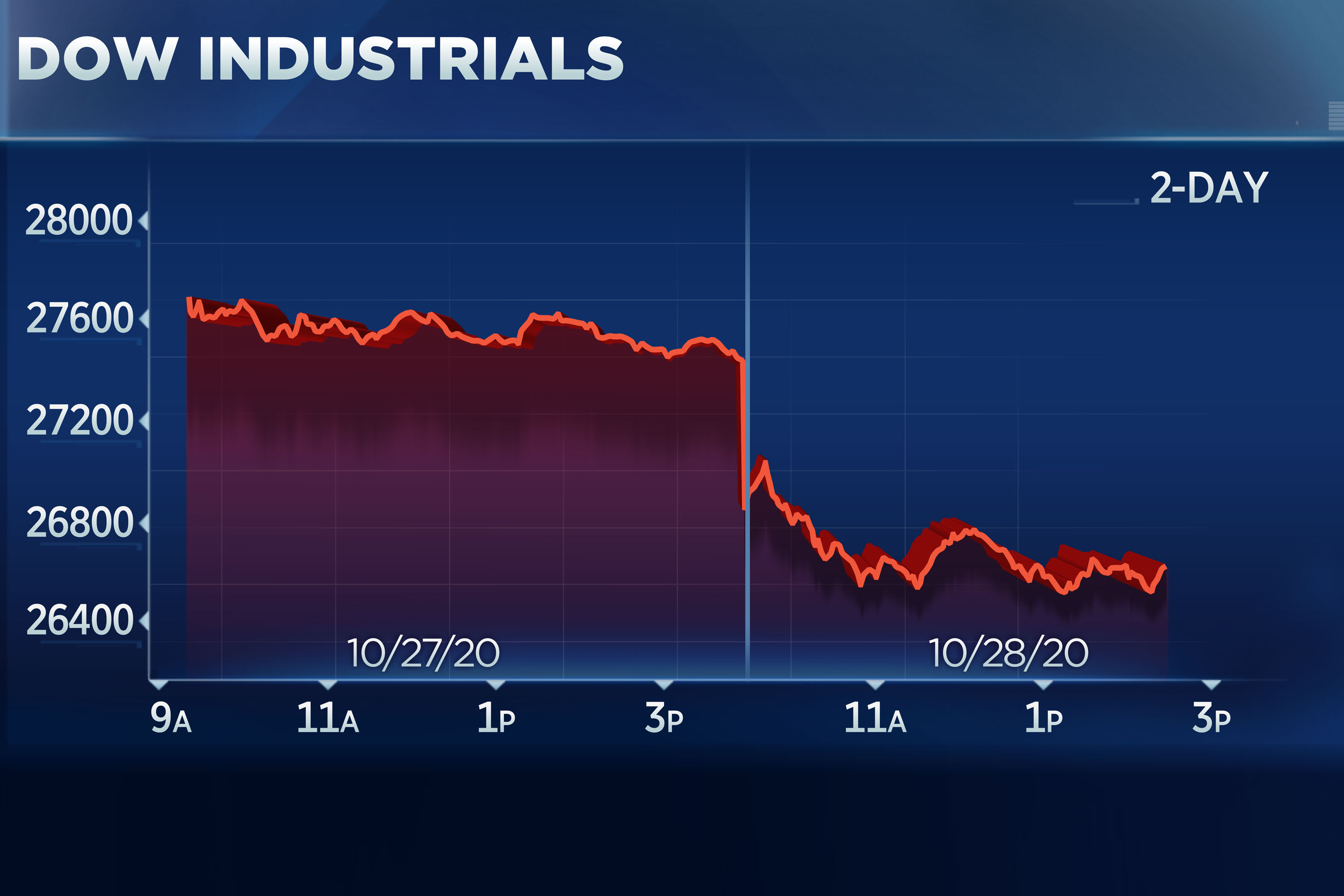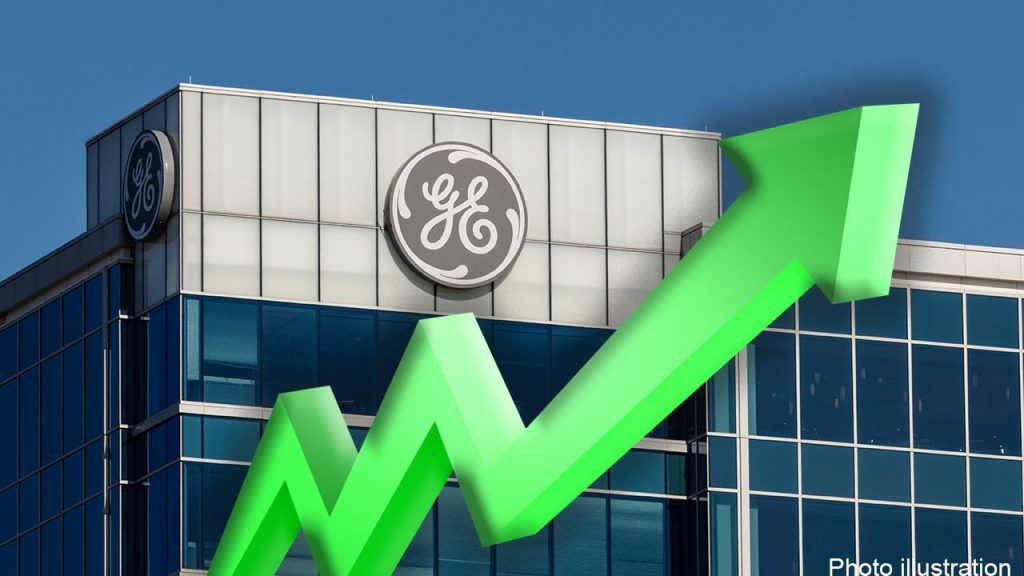
U.S. stocks fell sharply on Wednesday amid concerns over the latest increase in coronavirus infections and its potential impact on the global economy.
The Dow Jones Industrial Average dropped 820 points, or 3%. The S&P 500 slid 2.9% and the Nasdaq Composite traded 3% lower.
The U.S. indexes took their cues from the European market benchmarks. The German Dax index fell 4.2% to its lowest level since late May. The French CAC 40 slid 3.4%. The FTSE 100 in London closed 2.6% lower.
“Investors’ hopes that the Covid pandemic would not force further stringent mitigations measures and/or potential wholesale lockdowns that would push global economies back into ‘low-consumption mode’ appear to be coming under challenge,” said Yousef Abbasi, global market strategist at StoneX. “Avoiding these stringent measures has been a major tenant of the bullish thesis, particularly for those looking to value stocks and for a steeper yield-curve.”
U.S. coronavirus cases have risen by a record daily average of 71,832 over the past week, data compiled by Johns Hopkins University showed. Meanwhile, coronavirus-related hospitalizations are up 5% or more in three dozen states, according to data from the Covid Tracking Project. Cases are also rising sharply across Europe.
The recent uptick in Covid cases has led some countries to reinstate certain social distancing measures. In the U.S., the state of Illinois has ordered Chicago to shut down indoor dining. In Europe, German officials agreed to a four-week partial lockdown. The French government was also expected to impose new restrictions to stem the recent coronavirus increase.
“I think there’s going to be a call for lockdowns the likes of which we’ve seen in Chicago,” CNBC’s Jim Cramer said Wednesday. “The lockdowns without the stimulus equals what we’re seeing.”
“It’s a shame because, had there been stimulus, we’d then be focusing on earnings and the earnings are actually pretty darn good,” he said.
Stocks that would be hurt the most by lockdowns or a slowdown in the economy reopening led the declines on Wednesday. Shares of Delta Air Lines fell 4.3%. Royal Caribbean shares lost 5%, while Norwegian Cruise Line and Carnival dropped more than 7% each.
Facebook, Alphabet and Twitter were also down sharply as their respective CEOs testified in front of Senate members. Facebook and Twitter were off by 4.8% and 4.9%, respectively, and Alphabet slid 5%.
The Cboe Volatility Index (VIX), known on Wall Street as the market’s “fear gauge,” jumped above 40 and hit its highest level since June 15.
“We believe investors should seek to put further COVID-19-related restrictions in perspective and see market setbacks as an opportunity to build exposure in the winners from the next leg up,” said Mark Haefele, chief investment officer for global wealth management at UBS, in a note.
Earnings season continues
Wall Street also pored through the latest batch of corporate earnings for the previous quarter, including those of tech giant Microsoft.
Microsoft reported better-than-expected earnings and revenue for the previous quarter as sales from its cloud business grew sharply. However, the stock dipped 4.2% on light revenue guidance.
Boeing reported a quarterly loss that’s narrower than expected, but the company said it plans to cut thousands of additional jobs through 2021 as it adjusts to the long-term drop in air travel demand. Boeing shares dropped 3.6%.
Shares of General Electric gained 7% Wednesday after the company reported stronger than forecast revenues and a surprise adjusted profit for the third quarter. First Solar also posted quarterly numbers that beat analyst expectations, sending its shares up about 12.3%.
“Broadly speaking, earnings season is coming in better than expected,” said Megan Horneman, director of portfolio strategy at Verdence Capital Advisors. “The one thing is there have been some underlying concerns when you delve into some of the reports.”
“Also, not a lot of companies are giving solid guidance. That would have been something more reassuring to investors,” Horneman said.
— CNBC’s Yun Li contributed reporting.
Tune in to The News with Shepard Smith tonight at 7 p.m. as Dr. Anthony Fauci, director of the National Institute of Allergy and Infectious Diseases, joins the program.
Subscribe to CNBC PRO for exclusive insights and analysis, and live business day programming from around the world.

